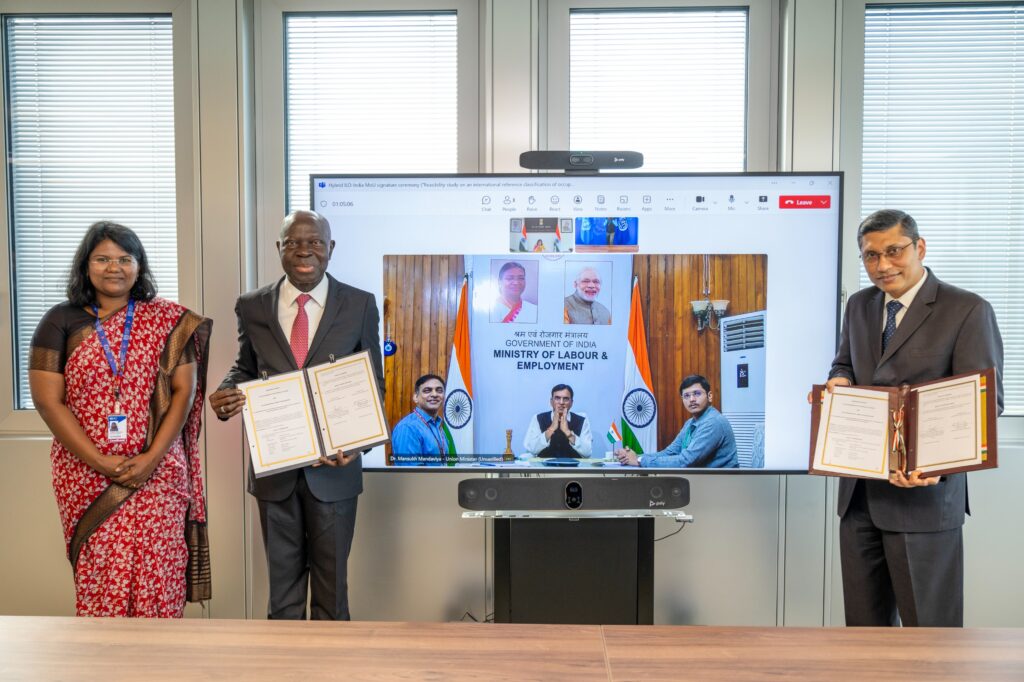India has taken another step towards expanding global employment opportunities for its youth by signing a Memorandum of Understanding with the International Labour Organization in Geneva on Tuesday, September 16.

The agreement focuses on the development of the International Reference Classification of Occupations, a system that will make it easier to match skills with global job requirements and support mobility of talent across borders.
The MoU was signed by Ambassador Arindam Bagchi, India’s Permanent Representative to the United Nations and other international organisations in Geneva, and ILO Director General Gilbert F. Houngbo. Union Labour and Employment Minister Dr Mansukh Mandaviya, who also holds the Youth Affairs and Sports portfolio, attended the event virtually.
Officials said the initiative comes at a time when many countries are facing acute shortages of skilled workers due to ageing populations and rapid digital transformation.
The project is in line with commitments made by G20 leaders under India’s presidency in 2023, when they agreed to create well-managed and skills-based migration pathways to address workforce gaps worldwide.
Pleased to virtually join the signing of the MoU between India & @ILO on the International Reference Classification of Occupations.
— Dr Mansukh Mandaviya (@mansukhmandviya) September 16, 2025
This milestone builds on the vision set forth by G20 Leaders under India’s Presidency and will strengthen global skill comparability, mutual… pic.twitter.com/Yxj22Xg548
The agreement is expected to help Indian workers integrate smoothly into global labour markets by ensuring mutual recognition of skills. It also supports India’s broader efforts towards formalisation of the workforce and generation of new employment opportunities, including through national schemes such as the Pradhan Mantri Viksit Bharat Rozgar Yojana, which aims to create millions of jobs in the coming years.
As part of the collaboration, a feasibility study and pilot exercise will be undertaken in emerging areas such as green industries, digital services and the care economy. These sectors are increasingly in demand globally and are seen as crucial for the future of work.
The International Labour Organisation described the agreement as an important step that could benefit not just India but also the global workforce. By aligning skills and qualifications with international standards, the partnership is expected to reinforce India’s position as a key source of trained and future-ready talent.


